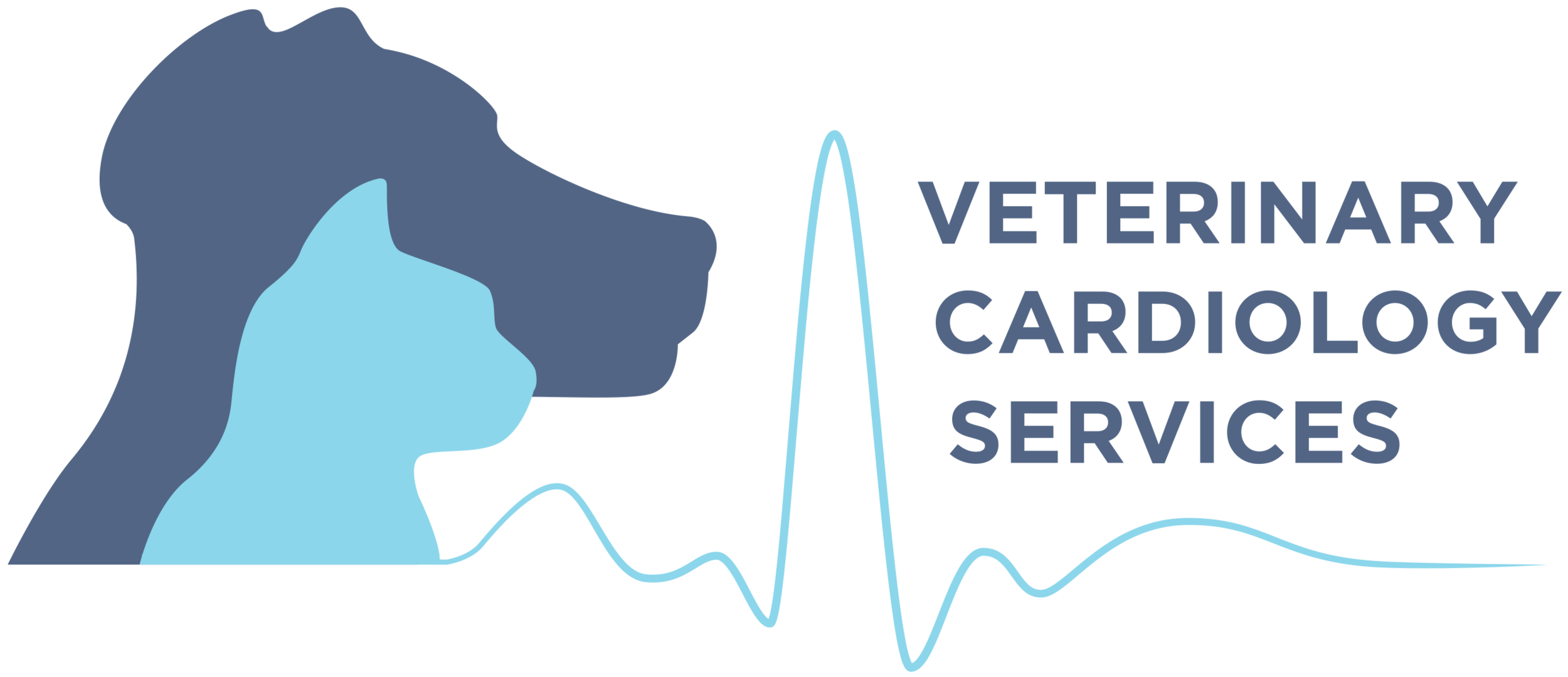Exploring the Essential Services Supplied by a Vet Cardiologist: Comprehending Ultrasound and CT Scan Methods
Veterinary cardiologists play an essential function in the health of animals by identifying and treating different heart disease. They utilize innovative imaging techniques, such as cardiac ultrasound and CT scans, to offer precise assessments. Each method has its unique advantages and applications. Comprehending these techniques is necessary for pet proprietors looking for the finest look after their buddies. What factors should family pet owners take into consideration when picking between these analysis tools?

The Function of Veterinary Cardiologists in Family Pet Medical Care
Vet cardiologists play an important role in the health care of pet dogs, focusing specifically on diagnosing and dealing with heart-related problems. They have specialized training that permits them to analyze complicated diagnostic tests and determine different cardiovascular issues. These professionals utilize innovative strategies, such as echocardiography and electrocardiography, to assess heart feature and structure accurately.Veterinary cardiologists likewise establish tailored therapy plans that may include medicines, lifestyle adjustments, and, in some instances, surgical interventions. Their proficiency reaches educating family pet proprietors regarding heart wellness, stressing the value of routine examinations and early discovery of prospective issues. Cooperation with basic vets is crucial, as it assures detailed take care of pet dogs with believed heart concerns. By supplying specialized services, vet cardiologists substantially improve the high quality of life for animals and provide satisfaction for their proprietors, enhancing the relevance of heart health and wellness in overall family pet health.
Typical Cardiac Concerns in Pet Dogs
Usual cardiac concerns in animals can greatly affect their health and lifestyle. Heart murmurs, different sorts of cardiomyopathy, and congenital heart flaws are among the most widespread problems that veterinarians run into. Board Certified Veterinary Cardiologist. Recognizing these issues is essential for animal proprietors to guarantee prompt diagnosis and ideal treatment
Heart Murmurs in Pets
Heart whisperings can be a resource of issue for family pet owners, they are not constantly a measure of significant health and wellness problems. A heart whispering is an abnormal noise created by turbulent blood flow within the heart. In pet dogs, these murmurs can be triggered by various aspects, including congenital heart issues, valve concerns, or also stress throughout examinations. Many pets with heart murmurs lead normal lives without significant health influences. To identify the underlying cause, veterinary cardiologists commonly utilize diagnostic methods such as echocardiograms and Doppler ultrasounds. Early discovery and assessment are essential, as they might help manage any type of potential heart issues efficiently. Pet dog proprietors are urged to consult their vet for an extensive assessment if a heart murmur is discovered.
Cardiomyopathy Types Explained
Cardiomyopathy encompasses a team of illness affecting the heart muscle mass, bring about compromised heart function in family pets. The most common types include dilated cardiomyopathy (DCM), hypertrophic cardiomyopathy (HCM), and limiting cardiomyopathy (RCM) DCM mostly influences dogs, triggering the heart to expand and weaken, which diminishes its capability to pump blood properly. In comparison, HCM is a lot more common in felines, characterized by the thickening of the heart walls, typically leading to blocked blood flow. RCM, though less common, takes place when the heart muscle ends up being stiff, limiting its capability to fill with blood. Each type provides one-of-a-kind obstacles in diagnosis and therapy, demanding specialized vet cardiological examination to guarantee peak monitoring and care for impacted pet dogs.
Hereditary Heart Issues
Hereditary heart flaws stand for a substantial category of heart issues in family pets, distinct from acquired conditions such as cardiomyopathy - CT Scans For Animals. These issues are structural abnormalities existing at birth, influencing the heart's normal function. Typical types consist of patent ductus arteriosus, ventricular septal flaws, and pulmonic stenosis. Symptoms might differ widely, ranging from light to extreme, and can consist of workout intolerance, coughing, and problem breathing. Early medical diagnosis with advanced imaging strategies like ultrasound is important for efficient management. Vet cardiologists play an important function in identifying these problems and advising proper therapy alternatives, which might include clinical management or surgical intervention. Identifying congenital heart flaws enables much better end results and enhanced lifestyle for affected family pets
Comprehending Cardiac Ultrasound: Exactly How It Functions
A considerable number of vet methods now use cardiac ultrasound as an important diagnostic tool for examining heart wellness in animals. This non-invasive strategy utilizes high-frequency sound waves to produce pictures of the heart's framework and function. During the treatment, a veterinary technician applies a gel to the animal's chest and utilizes a transducer to discharge ultrasound waves. These waves jump off the heart and bordering structures, creating real-time photos on a monitor.Veterinarians can examine different facets of heart health and wellness, consisting of chamber size, wall surface activity, and valve function. In addition, heart ultrasound enables the detection of abnormalities such as fluid build-up and genetic heart defects. This method is crucial for detecting problems that may not be visible via common radiographs. By offering detailed details go to this site regarding the heart's makeup and performance, cardiac ultrasound aids in creating efficient therapy prepare for pets struggling with heart condition.
The Importance of CT Checks in Identifying Heart Issues
How do CT scans boost the medical diagnosis of heart disease in vet medicine? CT scans offer detailed cross-sectional photos of the heart and surrounding structures, enabling veterinarians to imagine intricate physiological partnerships. This imaging method is especially valuable in determining genetic heart flaws, cardiac lumps, and irregularities in blood vessels. By using advanced imaging formulas, CT scans can analyze heart chamber dimensions and feature, using a complete view that might be difficult to achieve with typical methods.Additionally, CT angiography can envision blood flow and determine locations of stenosis or blockage, which is necessary for planning potential interventions. The rate and precision of CT scans also help with fast medical diagnoses, crucial in emergency circumstances. Inevitably, the incorporation of CT scans into veterinary cardiology considerably improves the precision of medical diagnoses, allowing targeted therapy strategies and boosting patient outcomes for animals struggling with heart problems.
Contrasting Ultrasound and CT Check Methods
While both ultrasound and CT scans are important devices in vet cardiology, they offer unique advantages and limitations that affect their usage in detecting heart problems. Ultrasound, or echocardiography, supplies real-time imaging of the heart's framework and feature, permitting vets to analyze heart chambers, shutoffs, and blood circulation. It is particularly reliable for evaluating problems like coronary infarction and cardiomyopathy. Ultrasound might be restricted in picturing specific physiological frameworks due to individual dimension or obesity.In contrast, CT checks offer thorough cross-sectional images of the heart and surrounding cells, making them suitable for identifying structural irregularities, growths, or vascular issues. Although CT scans give extensive understandings, they need sedation and may include radiation direct exposure. Inevitably, the choice in between ultrasound and CT checks depends on the particular professional situation, the individual's condition, and the details required for a precise diagnosis.
Therapy Choices Readily Available Through Vet Cardiology
Veterinary cardiology offers a variety of therapy choices customized to resolve numerous heart disease in pets. Treatment plans frequently begin with way of life adjustments, including diet adjustments and exercise modifications, targeted at enhancing total heart health and wellness. Medicines play an essential role, with cardiologists suggesting medications such as diuretics, beta-blockers, and ACE preventions to manage signs and improve heart function.In extra serious situations, interventional procedures, such as balloon valvuloplasty or stent placement, may be essential to alleviate clogs or improve blood circulation. For sure hereditary heart flaws, surgical choices may be checked out to fix structural issues. Furthermore, continuous tracking and follow-up treatment are vital elements of a detailed treatment plan, enabling timely adjustments based upon the pet dog's response to therapy. Generally, veterinary cardiology focuses on giving reliable, personalized like enhance the health and wellness of pet individuals with heart problems.
How to Prepare Your Animal for a Heart Analysis
Preparing a family pet for a heart examination is necessary to ensure accurate results and a smooth procedure. Proprietors must first arrange the visit with the vet cardiologist and talk about any type of specific needs or problems. It is a good idea to hold back food for at the very least 12 hours prior to the evaluation, as this assists boost imaging top quality during treatments like ultrasound or CT scans.Additionally, maintaining a tranquil environment on the day of the visit can aid reduce the animal's anxiousness. It is useful to bring along any relevant clinical records, including previous examinations and medicines (CT Scans For Animals). Owners ought to additionally ensure that their animal is comfortable and leashed throughout transportation to the facility. Acquainting themselves with the analysis procedure can help and minimize concerns in asking educated inquiries throughout the assessment. read the full info here By adhering to these steps, owners can add greatly to the performance of the heart analysis
Often Asked Questions
How much time Does a Heart Ultrasound or CT Check Take?
The duration of a cardiac ultrasound usually varies from 30 to 60 minutes, while a CT scan may take around 15 to half an hour. Factors such as the person's problem can affect these time price quotes.

Are There Any Kind Of Dangers Connected With These Diagnostic Treatments?

Can I Remain With My Pet Dog Throughout the Treatment?
The vet facility's plan commonly determines whether animal owners can continue to be during treatments. While some centers motivate proprietor existence for comfort, others might need splitting up to assure safety and suitable problems for diagnostic imaging.
Exactly how Much Do These Analysis Tests Normally Expense?
The costs of analysis tests, such as ultrasound and CT scans, normally vary based on location and center. Usually, prices range from a couple of hundred to over a thousand bucks, showing the intricacy and technology involved.
What Is the Recuperation Refine After a Heart Examination?
The recuperation procedure after a cardiac analysis involves keeping an eye on the animal for any kind of prompt responses, making certain comfort, and restricting physical activity. Vets typically supply post-evaluation instructions to direct pet dog proprietors during this vital healing duration. Heart murmurs, different kinds of cardiomyopathy, and hereditary heart flaws are among the most common conditions that veterinarians come across. A heart murmur is an uncommon audio generated by rough blood circulation within the heart. Cardiomyopathy includes a team of conditions impacting the heart muscle mass, leading to jeopardized heart feature in pets. Hereditary heart defects stand for a significant classification of heart problems in pets, distinctive from gotten conditions such as cardiomyopathy. Ultrasound, or echocardiography, provides real-time imaging of the heart's framework and function, enabling veterinarians to evaluate heart chambers, shutoffs, and blood flow.
Comments on “Exploring the Differences Between CT Scans For Dogs and CT Scans For Animals}”